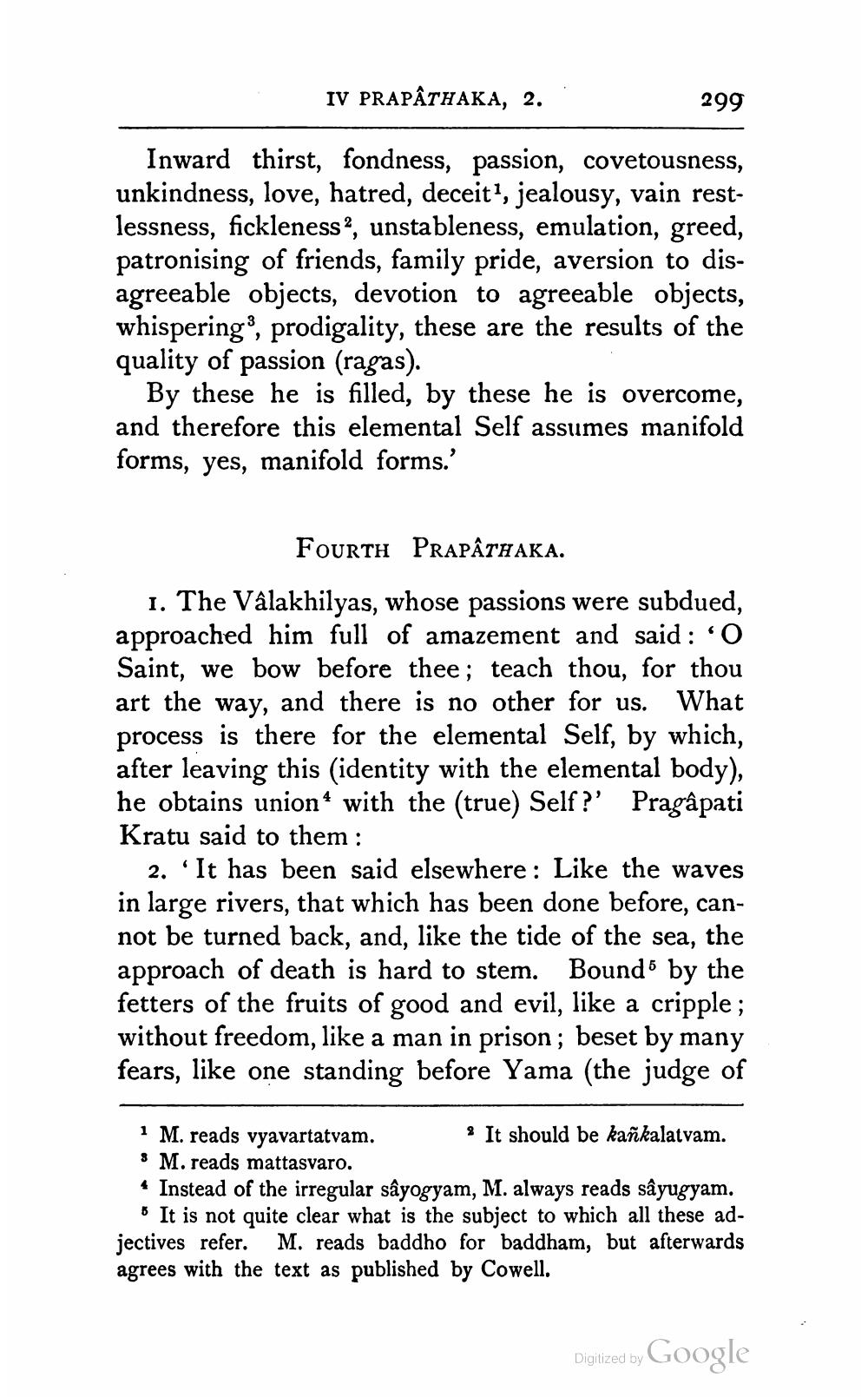________________
IV PRAPÂTHAKA, 2..
299
Inward thirst, fondness, passion, covetousness, unkindness, love, hatred, deceit?, jealousy, vain restlessness, fickleness?, unstableness, emulation, greed, patronising of friends, family pride, aversion to disagreeable objects, devotion to agreeable objects, whispering, prodigality, these are the results of the quality of passion (ragas).
By these he is filled, by these he is overcome, and therefore this elemental Self assumes manifold forms, yes, manifold forms.'
Fourth PRAPÂTHAKA. 1. The Vâlakhilyas, whose passions were subdued, approached him full of amazement and said: 'O Saint, we bow before thee; teach thou, for thou art the way, and there is no other for us. What process is there for the elemental Self, by which, after leaving this identity with the elemental body), he obtains union with the (true) Self ?' Pragậpati Kratu said to them :
2. It has been said elsewhere : Like the waves in large rivers, that which has been done before, cannot be turned back, and, like the tide of the sea, the approach of death is hard to stem. Bound by the fetters of the fruits of good and evil, like a cripple; without freedom, like a man in prison; beset by many fears, like one standing before Yama (the judge of
1 M. reads vyavartatvam.
It should be kañkalatvam. 3 M. reads mattasvaro. • Instead of the irregular sâyogyam, M. always reads sayugyam.
It is not quite clear what is the subject to which all these adjectives refer. M. reads baddho for baddham, but afterwards agrees with the text as published by Cowell.
Digitized by
Digitized by Google




